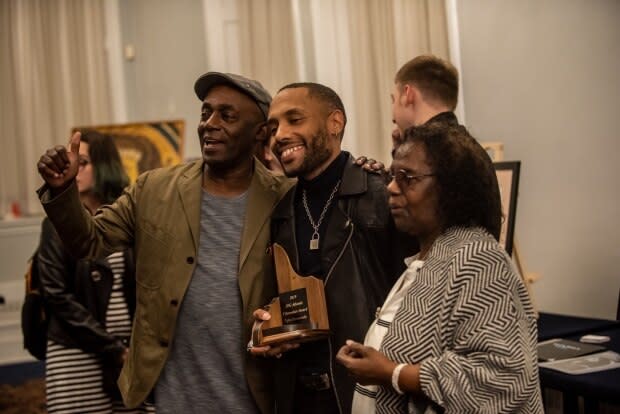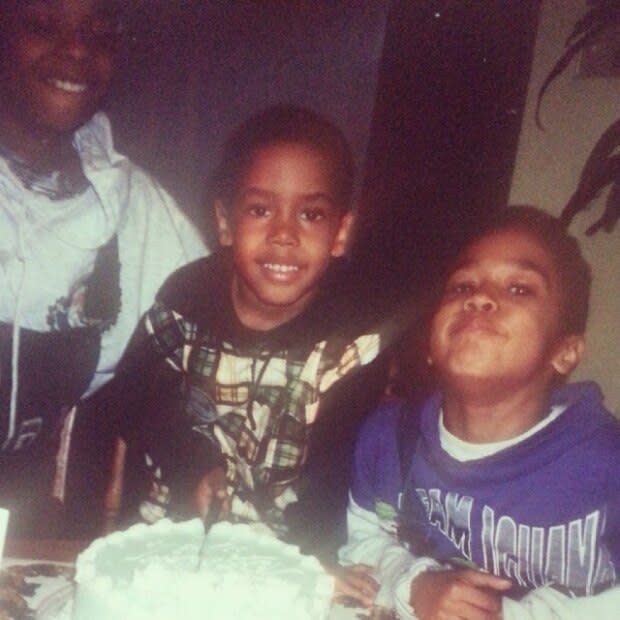Filmmaker wins award to explore racism, mental health in North Preston
Growing up as a young black boy in North Preston, N.S., filmmaker Tyler Simmonds was taught plenty of life lessons from his loving parents.
They included tips on how to not appear threatening when walking in a white world.
"Make sure you look white people in the eye if you walk into their store, make sure that your hands aren't in your pockets," he said about his lost childhood innocence.
"You're like, 'Oh, I'm a target and I'm just a kid.'"
Those early experiences, coupled with the knowledge of his hometown's history — ancestors scarred by slavery, settling on rocky land that's isolated geographically and socially, and being denied property ownership on land they've lived on for generations — bears a burden on its descendants.

And that's the subject of his next film, There's Soul in Our Soil. Simmonds, 29, who now lives in Halifax, intends to examine intergenerational trauma caused by racism and how it affects mental health. He believes they're linked.
"We have a lot of soul and we dig deep," said Simmonds. "We believe in a higher power. We've had to because of the amount of things that we have been through historically."
For that project, he received an award this week at Halifax city hall from the JRG Society for the Arts to help him develop the film. The award is given to filmmakers with a disability. The prize covers the rental of filmmaking equipment and post-production services.
The award is in memory of Justin Grant, a CBC Nova Scotia cameraman who died of amyotrophic lateral sclerosis (ALS) in 2015.

Simmonds has come to regard his disability as a "superpower."
"Working with my depression, working with my anxiety and ADHD, and figuring out how I can use these different things to create something beautiful, so cool, it's really empowering," he said.
Simmonds's first short film, In My Mind, also looked at mental health in the black community.
He lives with depression, anxiety and ADHD. His symptoms started when he was in early teens. He would come from school crying and feel emotionally exhausted from trying to be happy and social at school.
When he was about 17 or 18, he Googled, "Why am I always sad?" That led to professional help, and a journey into introspection that he finds therapeutic through public speaking and filmmaking.

Simmonds plans to dedicate the new film to his late grandfather, Victor Simmonds.
"I want to explore the masculinity in the community and how that affects mental health and also why that masculinity is the way that it is," he said.
Simmonds said his granddad was a gentle, peaceful soul.
"He just loved me so much and made me feel understood and not alone."
MORE TOP STORIES


